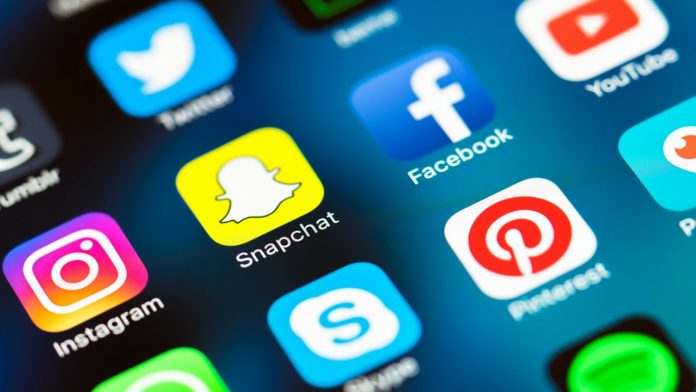By Somadina Eugene Okorie
The objective of basic principles of natural law is an essential requirement when criticizing unjust situation and unacceptable conducts in a given society irrespective of conflicting opinions. The tenets of traditional African culture and religion conform with the two major religious beliefs in Nigeria: Christianity and Islam, in other words, immorality is alien to our society. Morals apply to a broad field of conducts evaluated in terms of its aims, ends or results, while morality refers to a body of conducts according to accepted standards. Morality is an embodiment of approved customs, cultures or habits of a society of which an individual is a member. I wish to start by saying, and, it is a statement of fact, that the social media era is an interesting time in human history.
The advent of social media platforms such as Instagram, Facebook, Twitter, LinkedIn, WhatsApp and the likes, has made life a lot easier. These platforms now offer faster, easier and convenient ways of accessing, receiving and disseminating information. Consequently, governments, institutions, corporate organisations, Non Governmental Organizations, NGOs, academic institutions and business concerns as well as individuals have found social media as avenues of reaching their countrymen and target audiences. The speed, convenience and multiple reach advantages of social media remain unquantifiable value addition to the users.
The social media driven-economy is phenomenal and unprecedented. Millions of people now advertise and run their businesses, products and services on social media platforms. The stress-less income flow and patronage network with limitless opportunities have aggregated social media to become an epitome of new normal in business and economic activities globally.
However, this has come with a price to Africa and Nigeria in particular. Africans were known for their strict adherence to high moral standards, values, cultures and ethics. This explains why laws were enacted to regulate home video and film productions, broadcasting codes and publications to guide against immorality, but unfortunately, these laws were made without the evolution of social media in mind. The unregulated use of social media has, in a way, lowered the African moral and cultural values to the extent that some used-to-be taboos have now become the norms.
In Nigeria for example, uncensored videos and recordings are circulated on daily basis on social media. To generate attention, one can impulsively snap or record their nude appearance and post it on one or two platforms for viewers to comment, like and share. Such an aberration is done with the hope of translating the person into the spotlight of fame which may eventually earn the person a ‘celebrity’ status. Such a weird money making idea is believed to be a shorter route to earning brand endorsement deals with some corporate organisations.
The system also appears to tolerate transgender lifestyle though (Same Sex Marriage (PROHIBITION) ACT LFN 3013) the law does not allow homosexuality. While this moral decline fester, government concentrates more on imaginary enemies making “hate speeches” and trailing its critics on social media. Forgetting the importance of promoting the ideals, values and morality in the society which will rub off on the psyche of the young and future generations of Nigeria and Africa in general. There are relevant laws made to address the malaise and to protect the public from consuming sexually explicit items through films, videos and to protect and preserve the culture of motherland, among others. In doing so, all sensitive publications are meant to be censored in order to avoid the corruption of public morals.
These efforts have been defiled by the invasion of social media into our communication sphere. There is no denying the fact that the social media reaches farther than the cinematograph, televisions and videos which the law regulates. It is pertinent to say that publications on videos, television and even cinemas are flippant by nature, in the sense that if one was not present at the publication or airing of the content, it takes a repeat broadcast for one to view it unlike the social media; any publication on social media stays. Some individual accounts of the people corrupting the standard of morals are stronger and more influential than 10 television stations pulled together. Each publication sometimes reaches out to an average of one million people in one minute. It is also impossible to escape viewing these contents online because the social media are used for other meaningful purposes.
Section 3(d) (J) and section 4(e) of the National Orientation Agency Act LFN 2003 mandates the Agency to among other responsibilities to establish appropriate national framework for educating, orientating and indoctrinating Nigerians towards developing, socially desirable attitudes, values and culture … the national orientation agency has done little or nothing in sensitizing the general public on this area.
On the other hand, section 6, 17, 18 and 32 of the National Information Technology Development Agency Act LFN 2007 empowers the agency to issue regulations, framework and guideline for the use of information technology in Nigeria which includes the social media.
This contribution is not to support or promote the gagging of social media or to preach against creative minds and comedy works being promoted on the various platforms, but to lay credence to Section 36(1) (a) and (b) 36(2) (a) to (c) of the NFVCB Act which states that any publication, videos, pictures that depicts explicit sexual activities or acts designed to encourage homosexuality or contravenes moral values in Nigeria should be at least censored.
Corporate bodies that contravene the law are already taken care of in section 61 of the NFVCB and 17 of NITDA Act. The Board may through the big brands (social media accounts) and business owners limit who and what they can publish or promote and by so doing regulate, promote educational, moral contents and values.
This is the time to save and restore African values, ethics, morals and cultures which the younger generation and the generations to come may inherit before they are totally discarded. It is also highly recommended for relevant government agencies to initiate regulations and prosecution of the promoters of homosexuality and transgender agents as a means of deterrence and enforcement of law and order, as they only corrupt public morals.
Okorie, esq. Senocean Law Practice
Lekki Phase 1 Lagos State.













